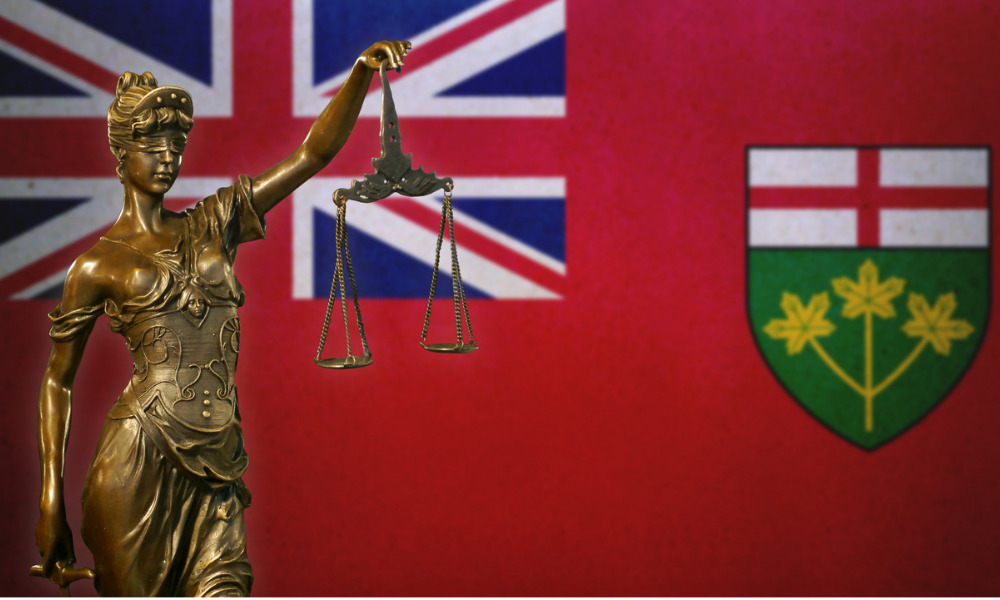
Kalu's offences include mail fraud and money laundering

The Ontario Court of Appeal has dismissed a judicial review of the minister of justice’s decision to extradite a Nigerian citizen to the United States to face prosecution for his role in multiple mail fraud and money laundering that primarily targeted elderly widowed women and caused losses of over $850,000.
In the Minister of Justice of Canada v. Chukwudi Kingsley Kalu, the appeal court upheld the justice minister’s decision to surrender Kalu, finding that his analysis of whether surrender would be contrary to the accused’s rights under the Canadian Charter of Rights and Freedoms was reasonable and without error.
Kalu’s offences in the US include conspiracy to commit mail fraud, mail fraud, conspiracy to launder monetary instruments, and money laundering in his name or alleged alias, “Kennedy Johnson.”
Kalu argued that the minister unreasonably concluded that his surrender would not violate his rights under s. 7 of the Charter of Rights and Freedoms or be unjust because of his fear that he might face persecution in Nigeria if he surrendered to the US and was subsequently deported and the impact the extradition would have on his immediate family. He further sought leave to file fresh evidence in support of his submissions. However, the appeal court denied his request.
The court wrote that the applicable standard of judicial review is reasonableness, which the minister met in his decision. “It is not this court’s role to reassess the relevant factors considered by the minister or substitute its view. Rather, the court must determine whether the minister’s decision falls within a range of reasonable outcomes.”
The court wrote that under s. 44(1)(a) of the Extradition Act, the minister could refuse to make a surrender order if satisfied that it would be unjust or oppressive and shock the conscience of Canadians considering all the relevant circumstances, citing United States v. Hillis.
“The minister considered all the relevant factors and determined, reasonably in our view, that Mr. Kalu’s circumstances did not meet the exceptional threshold that would justify the refusal of a surrender order. We see no basis to interfere with the minister’s determination of whether the surrender would be unjust or oppressive, which is entirely a matter of his discretion.”
The court refused to accept Kalu’s fresh evidence, which provided an update regarding his family’s circumstances and painted a slightly brighter picture concerning his spouse’s educational and employment prospects and social support. The court wrote that if admitted, it would make no difference to the outcome of the application.
“There is in substance no new information contained in the fresh evidence that was not before and considered by the minister, including Mr. Kalu’s membership in the Indigenous People of Biafra.”
Kalu further submitted that the minister erred in failing to consider that the pre-trial custodial term he had already served in Canada would render extradition pointless. He argued that the time spent incarcerated in Canada should be deducted from any sentence imposed upon conviction in the United States. However, the court dismissed his submissions and wrote that the minister was not at fault for not considering an issue that was not in Kalu’s original submissions.
“In any event, credit for pre-sentence custody is not a matter for this court to consider but should be raised at the sentencing stage of proceedings in the United States, if Mr. Kalu is convicted,” the court wrote.
Kalu and his common-law spouse moved to Canada and claimed refugee protection in Canada concerning Nigeria on June 8, 2019. He was arrested in Canada under s. 13 of the Extradition Act on Oct. 15, 2020.
On Jan. 7, 2021, a deportation order was made against Kalu for serious criminality and organized criminality based on US charges. As a result, on Jan. 8, 2021, Kalu’s claim for refugee protection was terminated for ineligibility and rendered him inadmissible to Canada.
Kalu did not file an appeal for his refugee claim termination, and on Apr. 12, 2021, Canada informed his spouse of her status as a protected person. His daughter was also issued a birth certificate.
On Jan. 12, 2021, the minister’s counsel in the International Assistance Group issued an authority to proceed, and on Mar. 24, 2021, the minister ordered Kalu’s committal for extradition.
In Apr. 2021, Kalu’s counsel made written submissions to the minister against his extradition, citing the risk of systemic racism in the US that would affect him if extradited to stand trial in Utah.
Kalu’s counsel also argued that his life would be at risk if he were extradited and eventually deported to Nigeria. Kalu submitted that this would have a devastating impact on his immediate family because of their health and financial circumstances.
On Aug. 19, 2021, the minister ordered Kalu’s unconditional surrender to the United States upon determining that his surrender would not be unjust or oppressive and would not violate s. 7 of the Charter because of the US Department of Justice’s assurances of the many measures in place to address and mitigate potential racial bias in trials and sentencing.
The minister determined that if extradited, Kalu’s immediate deportation from the United States was not inevitable because of the procedural recourses to seek asylum and other relief following his trial.
The minister also found that Kalu did not provide enough information to determine if he faced a personalized risk of prosecution if deported back to Nigeria.
While sympathetic to Kalu’s circumstances, the minister concluded that they did not amount to the exceptional conditions that outweighed the legitimate aims of extradition and Canada’s treaty obligations, given the financial, medical, and social supports available to his spouse and daughter.
He also noted that Kalu has no authority to work legally in Canada as an inadmissible person and is likely to be deported if he remains in Canada because he is the subject of a deportation order.